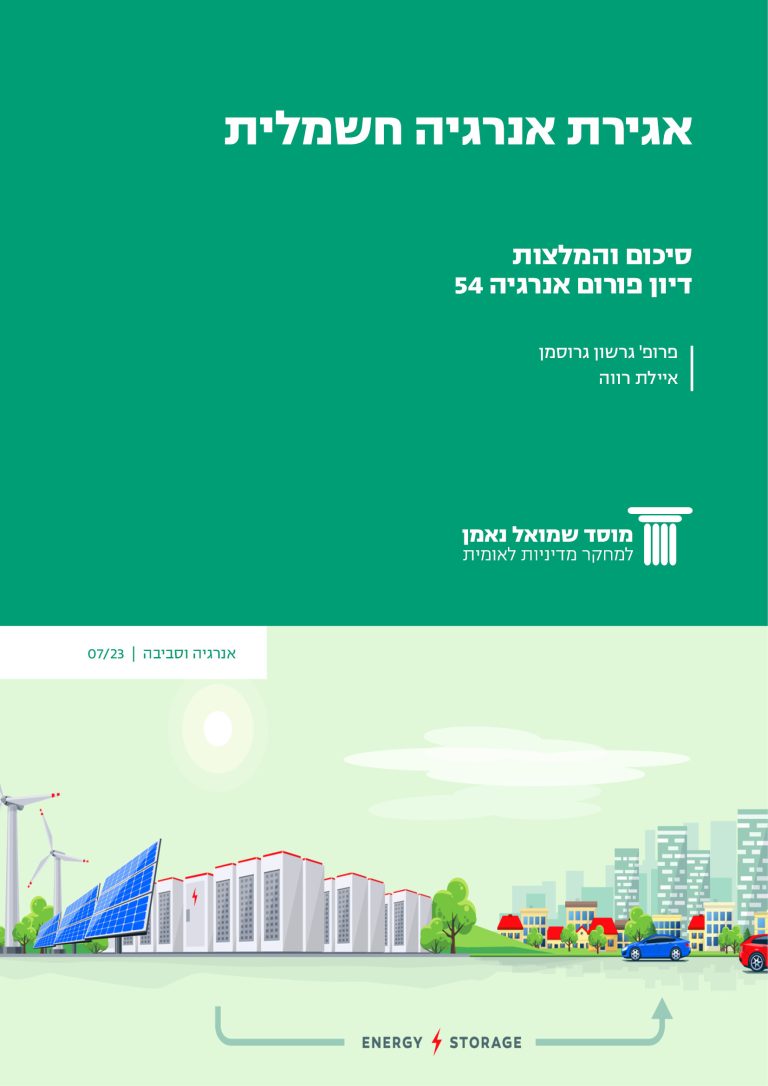The electricity grid, naturally, operates in a non-constant state, with fluctuations in both consumption and production. From this arise non-simple problems in network management. There are several ways to deal with these problems, the most immediate of which is a control mechanism of the electric company that activates or deactivates power plants of various types available to the system administrator. The use of this mechanism is not free from problems, among them the stability of the frequency. One of the excellent and convenient means of dealing with grid volatility is electrical energy storage.
In the electricity generation segment, storage helps to overcome problems such as demand peaks (“peaks”), frequency stabilization, rotating reserve in the network, and supply reliability. In the transmission segment, the storage contributes to stabilizing voltage levels, easing loads on transmission lines, and more. Also in the field of the distribution network, storage can contribute to reducing demand, decentralization, dealing with changing rates at different times and reliability of supply. Here there is room for local storage, at the consumer’s, and not necessarily on the scale of the network (GRID SCALE). In addition, storage plays an important role in introducing energy from renewable sources such as sun and wind, which by its nature is discontinuous.
There are various means of energy storage, and the right way from the point of view of the economy is to use a mix of technologies. Some are only suitable for large scale, such as pumped storage, while others are modular, such as batteries, and can be used at different scales. Since the primary source of energy is usually heat, resulting from burning fuel or solar radiation, there is room for storing heat from which electricity is generated when needed, as opposed to generating electricity and storing it as such.
Storage has an important place in the electricity sector and as a contribution to saving and protecting the environment. In this respect, this means should be seen as just as important as renewable energy, and deserves appropriate incentives.
Data presented at the forum indicate that as of 2020 there is an installed storage capacity of approximately 8500 gigawatts in the world.
Over 90% of this is pumped storage worldwide. According to these data, there is an estimate that about 1.8% of all global electricity output today is accompanied by storage. Besides pumped storage, there are heat storage technologies, flywheel, gravitation, compressed air and electrochemical methods, including batteries of various kinds. In Israel, as in the rest of the world, there are many barriers to implementation, not only financially, but also in terms of regulation. One of the issues that are being faced in the world today is: Does hoarding fall under the category of production?
Recommendations:
- A national master plan is needed that relates to the Israeli electricity sector, which will determine what the target is, not only in renewable energies but also in the matter of storage – what output do you want to reach.
- The challenges related to storage as a whole must be addressed, with an emphasis on distributed storage, and this through production facilities that include local storage capacity, including the installation of storage on private roofs where there is solar production (this will allow for an increase in production by reducing the cut-off as well as shifting the supply of solar electricity to the night hours ).
- Protocols and regulations must be introduced to determine for storage facilities how they will connect to the electricity grid, and to determine the efficiency of the systems so that it is possible to compare the different technologies.












